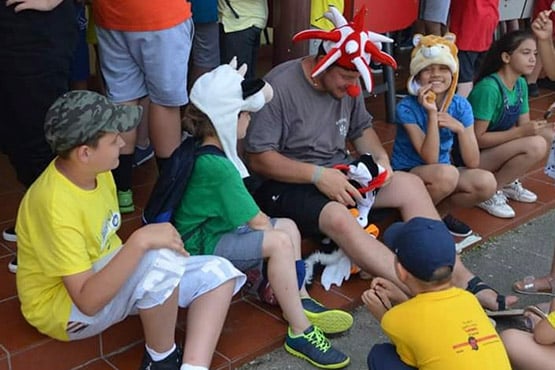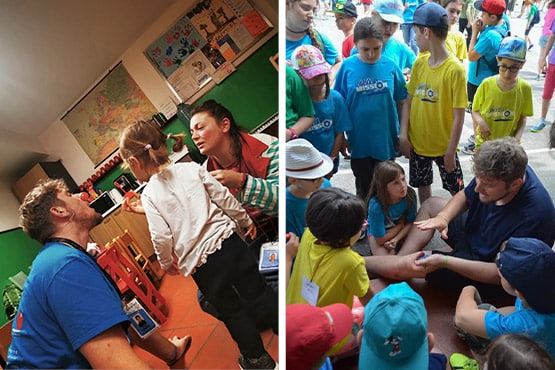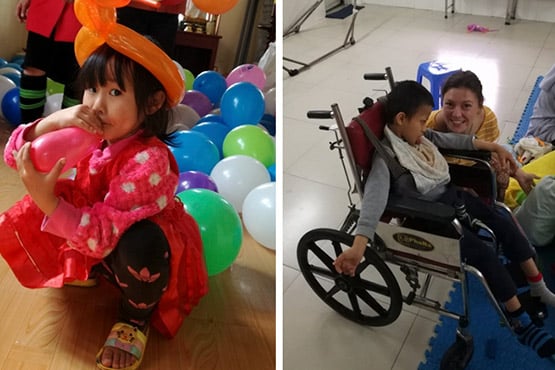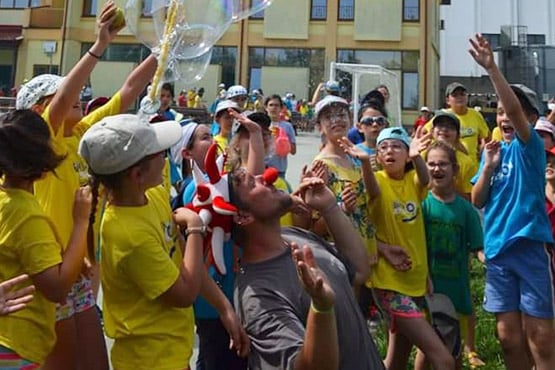
Clown Project, Micromagic, Juggling
The clown is a very interesting figure with regards to social care activities towards vulnerable groups. It is an excellent tool to overcome the barriers between volunteers and recipients, especially if they are children. Improvisation, joy and trust are the basis of the meetings to rediscover simplicity and spontaneity, which we have when we are children, but we lose slowly over time.
Participants interact with each other, bringing out the differences, knowing how to respect and sharing particular moments, even if with different visions.
The clown focuses on respect for everyone and tries to turn everything that can inspire him, into play. It is not just cheerfulness or fun, it is also the ability to recognize your emotions and respect them, whatever they are.
With this playful activity, the aim is to teach a new world and perhaps even a profession; you learn to collaborate by interacting to build together, with respect and awareness of the differences that characterize each one; you learn to share thanks to the continuous exchange to be able to give and receive, building a cohesive and strong final group.
The Micromagic is the most practiced kind of magic in the world. In the micromagic the magician combines his dexterity of hand with some illusions. With dexterity of hand the magician is able to manipulate and hold secretly cards, coins and small objects. Instead, the illusions are a demonstration of manipulative skill of the magician and they are more equivalent to Juggling.
They are methods of great impact to attract the attention of children, therefore to manage situations of children who are not used for group life, difficult to hold back.
Our experts are:
Stefania Liborio, residing in Bergamo, aged 28.
Andrea Del Giudice, residing in Bergamo, aged 35.
Both of them clown and micromagic/juggling experts have:
a) the diploma of Circus Operators and social theater at the “Circostanza Centre” in Turin;
b) the continuous Clown training within the “We live in Positive” Federation, of which they are part of through courses at the University of Social Issues;
c) voluntary experiences also in other areas of Romania (Andrea in the Salesian Centre and Stefania inside a prison and in a centre for disabled people);
d) experience in Vietnam for animation with children from the Christian community and various ethnic minorities with orphans or children with various difficulties or blind people.
Other specific qualifications of Andrea:
a) he attended a magic school and is now a trainer; he managed a school of magic in the past and now teaches at the “Don Bosco Treviglio” salesian school - first grade secondary school;
b) he has participated in voluntary travels through Caritas in Albania and Bosnia as an animator and carrying out social circus activities.
Stefania spent a month in Brazil helping the nuns of the Palazzolo Institute taking care of girls in difficulty who lived together in a house and teaching English as well as social circus activities.
Both of them operate as volunteers in the project (they only require reimbursement of expenses).



